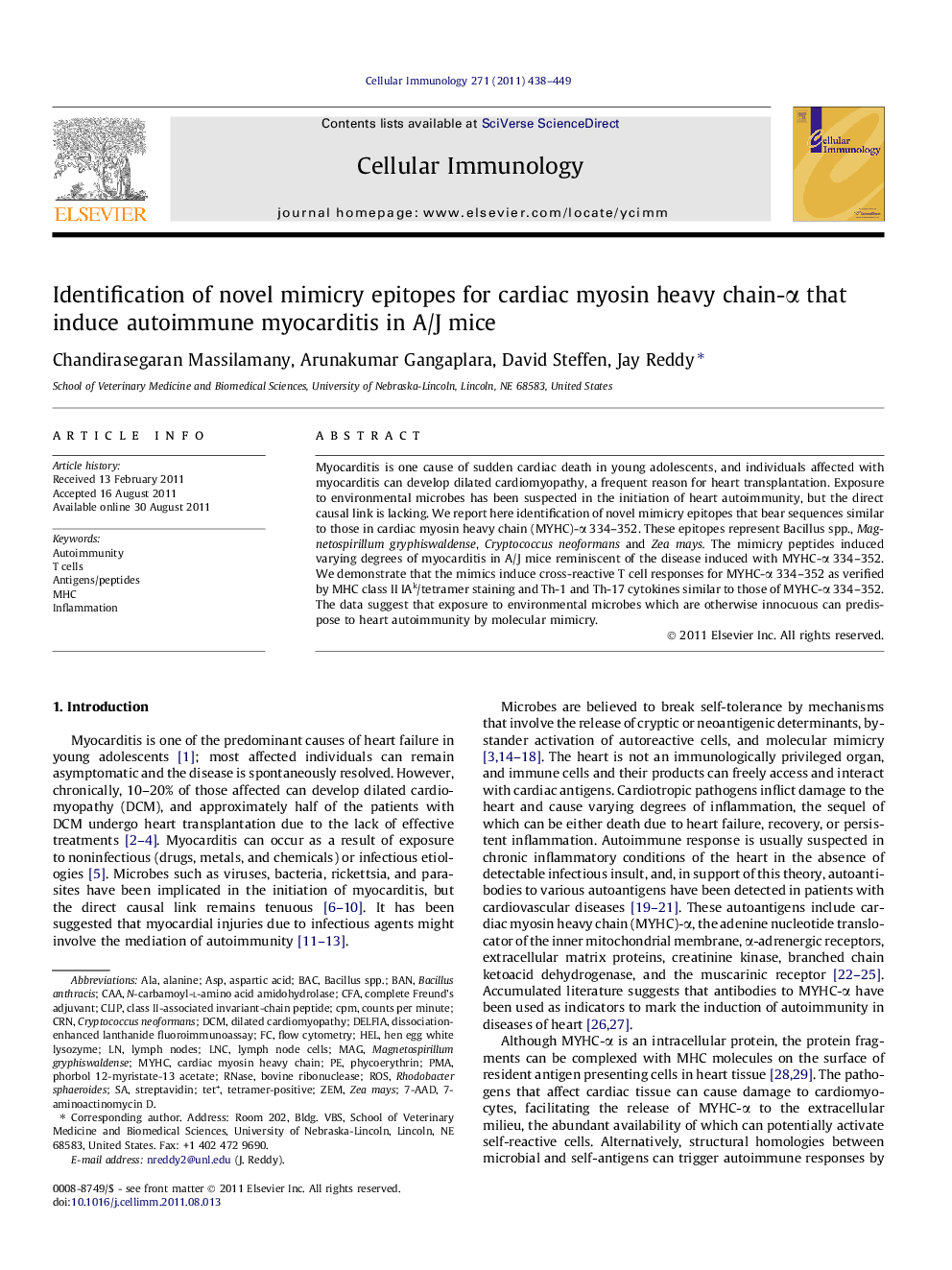| Article ID | Journal | Published Year | Pages | File Type |
|---|---|---|---|---|
| 2167301 | Cellular Immunology | 2011 | 12 Pages |
Myocarditis is one cause of sudden cardiac death in young adolescents, and individuals affected with myocarditis can develop dilated cardiomyopathy, a frequent reason for heart transplantation. Exposure to environmental microbes has been suspected in the initiation of heart autoimmunity, but the direct causal link is lacking. We report here identification of novel mimicry epitopes that bear sequences similar to those in cardiac myosin heavy chain (MYHC)-α 334–352. These epitopes represent Bacillus spp., Magnetospirillum gryphiswaldense, Cryptococcus neoformans and Zea mays. The mimicry peptides induced varying degrees of myocarditis in A/J mice reminiscent of the disease induced with MYHC-α 334–352. We demonstrate that the mimics induce cross-reactive T cell responses for MYHC-α 334–352 as verified by MHC class II IAk/tetramer staining and Th-1 and Th-17 cytokines similar to those of MYHC-α 334–352. The data suggest that exposure to environmental microbes which are otherwise innocuous can predispose to heart autoimmunity by molecular mimicry.
► Identified novel mimicry sequences for cardiac myosin heavy chain-α 334–352. ► Mimicry epitopes induce myocarditis in A/J mice through antigenic mimicry. ► Cross-reactive T cells produce T helper (Th)1 and Th17 cytokines. ► Our work creates opportunities to develop new animal models for myocardial injuries.
